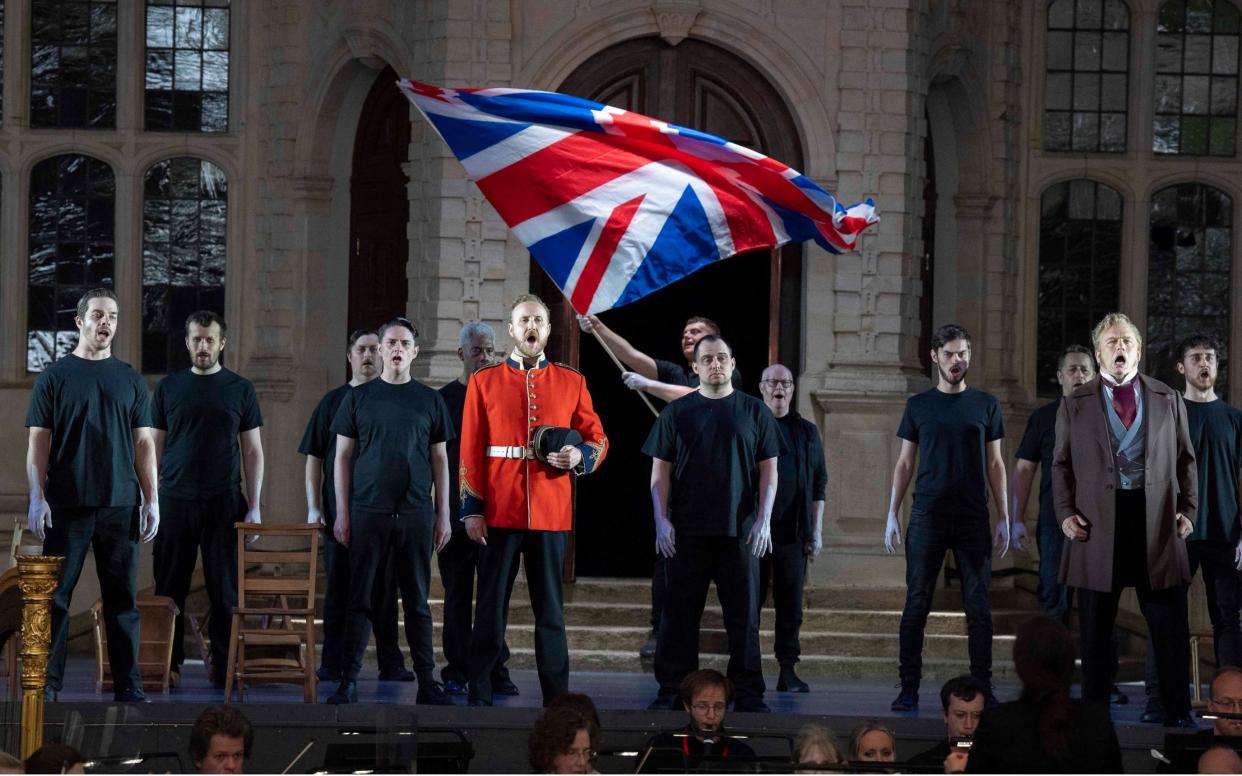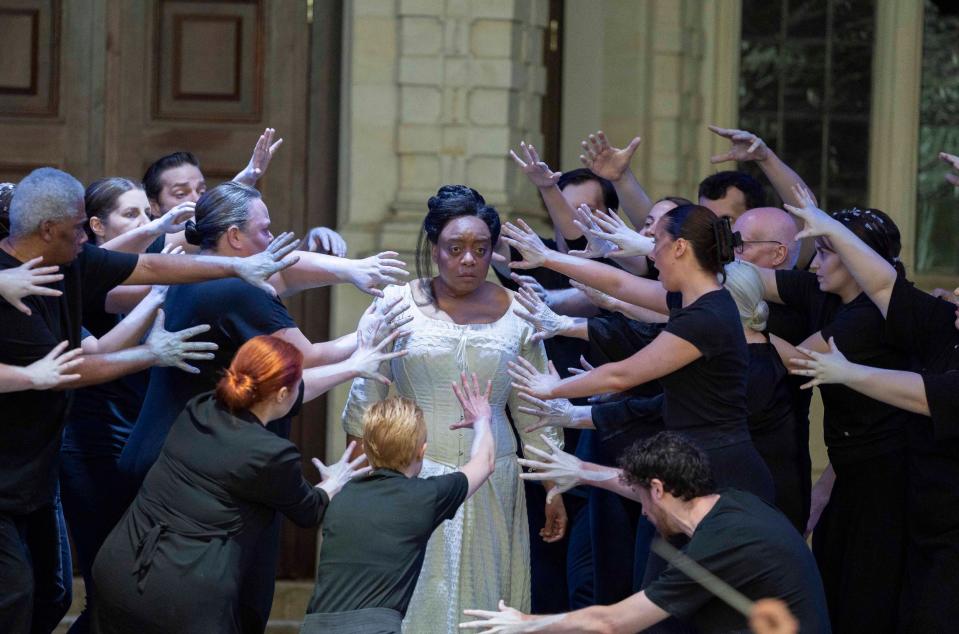Edgar, Opera Holland Park: There’s no disguising the banality of Puccini’s early melodrama

When Puccini gave a copy of his early 1889 opera Edgar to a friend in later life, he wrote in Italian on the title page, “And may God preserve you from this opera!” In the wake of Opera Holland Park’s valiant attempt to rescue this problematic piece for Puccini’s centenary, one can only heartily agree with the advice.
The composer put an enormous amount of effort into the opera, revising it, shortening it by an act when it was revived, but he still didn’t manage to shape it to his own satisfaction. For this, the blame has generally fallen on the clunky plot and libretto by Ferdinando Fontana, but this new semi-staging demonstrates that the music itself must take a fair share of the flak, with its mixture of choral cliché and early attempts at verismo, leavened only by a few striking arias.
Although set in Flanders in 1302, Ruth Knight’s admirably straightforward direction in the bare Holland Park set suggests the British empire, limited to one Union Flag and one military costume: throughout, the Opera Holland Park Chorus are in all-black, with eerily whitened hands. Edgar (the ever-reliable Peter Auty) is torn between the chaste and virtuous Fidelia (Anne Sophie Dupreis) and the more dubious and flamboyant Tigrana (Gweneth-Ann Rand). The villagers at church are viciously opposed to Tigrana, while Frank (Julien Van Mellearts) who also desires Tigrana, fans the flames of conflict, leading to the burning of the church.
The drama unfolds in four-square music, as if Puccini has glimpsed the subtlety that will animate his later works but hasn’t quite worked out how to express it. There’s a strong tonal aria for Frank, Questo amor, vergogna mia, splendidly declaimed by Van Mellearts, but the chromaticism elsewhere is quite crude, while the idiom of the church scenes is milk-and-water sanctimonious. Dupreis’s Fidelia is pure and focused in her climatic aria, Or la attender la vo’; the more interesting music for Tigrana is powerfully declaimed by Rand, but on Tuesday night she was too squally and vague at the top of her range.
You wonder, curiously, how it will all end.. Edgar having escaped with Tigrana, supposedly dies in battle and there is another church scene of his funeral with good children’s chorus (which the conductor Toscanini performed at Puccini’s own funeral a hundred years ago).

A curate denounces Edgar, and in a specially unpleasant scene bribes Tigrane with jewellery to add her critical voice. But the curate turns out to be Edgar himself, and the coffin is empty. Edgar turns back to Fidelia, who has remained faithful to him, Tigrana stabs her (or here shoots her with alarming accuracy right across the heads of the orchestra) and the villagers turn on her.
Conducting a slightly reduced orchestra, Naomi Woo was careful and shaped the phrases well, but did not quite have the depth and sweeping passion that might have rescued more of the piece. She made the most with the City of London Sinfonia of the fine Act Three Prelude, surely the best music in a sadly uneven score. Far better was to come from Puccini.
Further performances July 4 and 6; operahollandpark.com

 Yahoo News
Yahoo News 
